From top:Ian Bailey in 1997; Garda witness Marie Farrell; Justice Nial Fennelly
*burp*
The Fennelly Commission report was released last night.
Set up under Judge Nial Fennelly as a result of disturbing discoveries about the Garda investigation into the death of Sophie Toscan du Plantier, the commission took three years, nine barristers and 800 pages to come to its conclusions.
Eight hundred.
We asked ‘Legal Coffee Drinker’, what’s it all about.
Broadsheet: “Legal Coffee Drinker, what’s it all about?”
Legal Coffee Drinker: “It’s about two things. Firstly, the degree to which superior officers in the Gardai were aware of the surreptitious recording of non-999 calls in divisional Garda stations from 1985 onwards.
Secondly, the extent to which surviving recordings of such calls made to and from Bandon Garda station discloses misconduct by police officers in the Sophie Toscan du Plantier investigation.”
Broadsheet: “And what did the report conclude on this first issue?”
LCD: “It confirmed that the recording of non-999 calls had systematically taken place over decades without the knowledge or consent of parties to these calls. It confirmed that among the calls so included were calls between accused and their solicitors.
It confirmed that the Telecommunications Division in Garda HQ was aware that non-999 calls were being systematically recorded, having received at least one expression of concern about this from a member of the Gardai.
However it took the view that this knowledge was not shared by Garda hierarchy, who were entirely unaware that such recording was taking place. It also found that there was no evidence of any general practice of making use of the recordings, although it couldn’t rule out the fact that they might have been so used in specific cases.”
Broadsheet: “But… this wasn’t a practice confined to one particular Garda station?
LCD: “No, the practice of recording non-999 calls was routinely applicable to all divisional Garda stations, for many years, decades in fact.”
Broadsheet: “And Garda top brass didn’t know?”
LCD: “Previous Garda Commissioners gave evidence that they had believed recording was confined to 999 calls only. The Fennelly Commission accepted this and described the situation as ‘an extraordinary picture of almost complete ignorance’.”
Broadsheet: “Was there any attempt to query the assertions of the Garda Commissioners in this regard?”
LCD: “Where there is no documentation, and no member of the force who comes forward to give evidence of knowledge on the part of the Garda hierarchy, it can be difficult to challenge even unlikely assertions. The Commission did struggle a little to find an explanation for the complete ignorance. The suggestion was made to them that perhaps because the Garda hierarchy was based in Dublin, they were out of touch with what went on in country areas.”
Broadsheet: “The old Nuremberg defence (sucks teeth).”
LCD: “Well…”
Broadsheet: “What does the report tell us about the Sophie Toscan du Plantier investigation?”
LCD: “To understand this portion of the report, it’s helpful to start with a brief account of the case brought by Ian Bailey against the Gardai in relation to their conduct of this investigation.
He alleged mistreatment of himself and his partner Jules Thomas by a number of Gardai, including the late Detective Sergeant Liam Hogan, whom he alleged told him he would “be found dead in a ditch with a bullet in the back of your head”.
Also giving evidence for Bailey was Martin Graham, who accused Detective Garda Jim Fitzgerald of having given him cannabis for information against Bailey. Another witness was Marie Farrell, who claimed that Fitzgerald and others had coerced or induced her into making a false statement identifying Bailey, knowing it to be false, and further coerced or induced her into making further complaints that she was being threatened by Bailey.”
Broadsheet: “Do all these people crop up in the Report?”
LCD: “They do. Hogan, Fitzgerald, Graham and Farrell are clearly identifiable in the Report as Sergeant Alpha, Garda Delta, Mrs A and Mr S respectively.
The calls transcribed in the report include a conversation between Garda Fitzgerald and another garda regarding an assault alleged to have been carried out by Marie Farrell’s husband, Chris, on another man, Mr C.
In this conversation, Garda Fitzgerald suggests the possibility of Chris Farrell making a counter-statement for assault against Mr C advance of Mr C making his complaint. The other Garda (described as Garda Epsilon in the Report) responds by saying:
“Sure we can always pre-date it if it comes to it”.
Detective Garda Fitzgerald says:
“Exactly, yeah.”
Towards the end of the same telephone conversation, in the course of discussing actions open to Mr and Mrs Farrell in the event that Mr C were to make a complaint, the following exchange takes place:
Garda Fitzgerald: “And you can always say that sure he drew a punch and missed as you drew back, you know what I mean. ”
Garda Epsilon: “Yeah.”
Garda Fitzgerald: “He’s a man of the world, he knows what to say and do. ”
Garda Epsilon: “Oh yeah.”
Garda Fitzgerald: “What?”
Garda Epsilon: “Oh, we’ll cover him alright.”
In evidence to the Commission, Garda Fitzgerald said that he was talking about an actual assault on Mr Farrell by Mr C which Mr Farrell had told him had happened. Garda Epsilon indicated that he was not aware of any such assault.
There’s another recording of a conversation between Fitzgerald and Marie Farrell discussing the possibility of a further complaint of assault against her husband Chris by a person who had previously acted as babysitter for their children.
In it, Garda Fitzgerald appears to suggest that Mr and Mrs Farrell could seek to dissuade the babysitter from making a complaint by threatening to make their own complaint that they previously assaulted one of the children of Mr and Mrs Farrell.”
The conversation goes as follows:
Garda Fitzgerald: “No, no, no, but fucking going to the guards, they will in their bollix, ha.”
Mrs Farrell: “Oh, I know she is all mouth.”
Garda Fitzgerald: “She’s only ha? Do you know, put it this way, Mrs Farrell, you could also say we will go to the guards. When you were babysitting that you assaulted [a named child]. Ha?”
Mrs Farrell: “Yeah.”
Garda Fitzgerald: :D’you know what I mean? Be easy for [the named child] to say — or, you know, that he got a belt. Ha?”
When asked about this discussion by the Commission, Garda Fitzgerald said that Mr and Mrs Farrell had previously alleged to him that the babysitter was slapping the children.
He said that he had made the remark about it being easy for [the named child] to say that he got a belt to overcome what he perceived as a general reluctance on the part of Mr and Mrs Farrell to make statements of complaint, by assuring them that it would be an easy matter for the child in question to make a statement if he or she wanted to do so.”
Broadsheet: “Hmm. Was that the only time Garda Fitzgerald came up in the Report?”
LCD: ” No. There’s another reference to a recorded conversation he had with Mr Martin Graham.”
Broadsheet; “The man who alleged he was given cannabis?”
LCD: “Yes. This conversation differs from the other recordings because it was recorded with the knowledge of Garda Fitzgerald. It took place in a car on a journey to Mr Graham’s home, and goes as follows:-
Garda Fitzgerald: “In case you go to pub tonight… I have a bit of money there you know, a little bit of stuff, you know, I’ve a bit – I’ve got a few smokes as well for you.”
Mr Graham: “Have you got some hash?”
Garda Fitzgerald: “I have cash, I’ve cash and I have something in a- and I have a few smokes here in the – you know, you said you were starved, were you.”
Garda Fitzgerald told the Commission that the reference to ‘stuff’ related to cigarettes and plug tobacco which he had purchased in a shop before they met Mr Graham at evening. He suggested that Mr Graham made the reference to ‘hash’ in order to entrap him.
The Commission also heard from the telecommunications technician who had recorded and transcribed the interview, voluntarily adding the words “Lighting a cigarette and laughing” into the transcript immediately after the reference to hash. The Commission felt that the technician had not been authorized to insert these words and they did not feel that Mr Graham was joking.
Broadsheet: “So what then did the Commission conclude about Garda Fitzgerald’s conduct?”
LCD: “It accepted there was a conflict of fact between Garda Fitzgerald and Garda Epsilon as to whether or not Mr C had previously assaulted Chris Farrell. However, it felt that the question of a fabrication of a complaint against Mr C did not ultimately arise because Garda Epsilon had been able to persuade Mr C not to pursue its assault complaint.
As regards the complaint made against the babysitter, it held that, although there were some ‘aspects of concern’, it was not possible to establish whether or not Ms Farrell had previously told Garda Fitzgerald about an alleged assault and therefore whether or not he had been suggesting the fabrication of evidence.
Finally, in relation to the hash issue, while rejecting the suggestion that Mr Graham was joking when he referred to hash, it found that Mr Graham’s request was not evidence that Garda Fitzgerald had expressly or impliedly offered to pay him for hash, in circumstances where the conversation with the reference to hash had been voluntarily recorded by Garda Fitzgerald.”
Broadsheet: “Anything about Sergeant Hogan?”
LCD: Yes. There was a transcript of a conversation between Sergeant Hogan and Garda Fitzgerald, regarding a statement made by one of their colleagues about Jules Thomas [partner of Ian Bailey’. In it, he had written:
“I knew she was making every effort to tell me the truth.”
Sergeant Hogan took issue with this portion of the statement, saying to Garda Fitzgerald:
“Fuck it, she wasn’t anyway…. Ah fuck it, it’s awful. When I see your friend then, like writing them stupid fucking statements, like I mean… what man…”
He continued:
“Yes, that statement has to get fucking chopped up anyway.”
There was also another conversation between Sergeant Hogan and a further garda (described as Sergeant Beta in the Report) which discussed amending a written statement of a witness who had said that he remembered someone having told him that Mr Bailey was in the pub on a particular night.
In the phone call Sergeant Beta expressed annoyance at the hearsay element of this statement, saying:
“[it] undermines the whole thing… I will take that out so to fuck will I?”
Sergeant Hogan’s response was inaudible.
The Commission Report also contained details of conversations that Sergeant Hogan had had with civilians and journalists regarding the Bailey case, in which he referred to Mr Bailey in pejorative terms.”
Broadsheet: “What sort of terms?”
LCD: “A ‘cunning bastard“, “he’s fucking playing some game at the minute“, “he’s that cute“, “he has a temper threshold that, like he’d snap like that“, “beaten the one he’s living with, sure he’s beaten her to a pulp a few times“, “sex was the fucking motive“, “she did a runner if he got near her, you see, and that was it an the caught her.”
Broadsheet: “Gulp. And what conclusions did the tribunal reach on Sergeant Hogan?
LCD: “That he – and other members of the Gardai – were prepared to contemplate altering, modifying or suppressing evidence that did not assist them in furthering their belief that Mr Bailey was the murderer, but that there was no actual evidence of such alteration or modification having taken place as the statements objected to appeared unaltered on the investigation file.”
Broadsheet: “We don’t have any evidence to contradict their explanations and where no explanation is provided no harm was done?”
LCD: “A bit, yes. As with its conclusion on the systematic recording of tape recordings generally.”
Broadsheet: “So your overall conclusion?”
LCD: “The Garda Siochana is a mysterious place and keeps its secrets close. Also, the Hogan & Fitzgerald modus operandi is a little worrying, to say the least. This wasn’t Sergeant Hogan’s first case. His father commanded the Garda in West Cork for decades. Hogan himself was involved at a high level in the Catherine Nevin investigation and in investigating Martin Cahill. He’s a familiar figure in Irish true-crime books. Presumably there are recordings of his phone calls in other cases. It would be interesting to hear them.”
Broadsheet: “With consequences for appeals generally?”
LCD: “I think this report will have consequences for appeals generally in another respect. Unconstitutional recording of phone calls between an accused and their solicitors raise issues as to the lawfulness of the accused’s detention and any confession subsequently made by them. We done?”
Broadsheet: “Thank you very much Legal Coffee Drinker.”
LCD: “Give me a bit more notice next time.”
Broadsheet: “Of course, sorry. Thanks. Have a great weekend.”
LCD: “You’re still on the phone.”
Broadsheet. “Sorry bye.”
Rollingnews
Earlier: “I’ll Face Him Down.”
Yesterday: Nothing To See Here


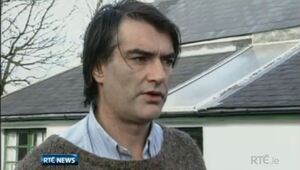
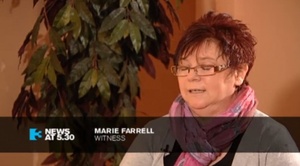
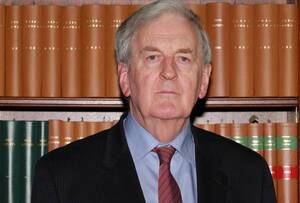


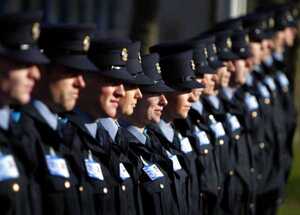
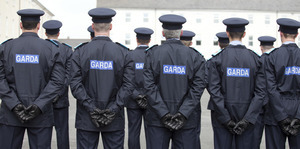
Absolutely brilliant, thanks to BS and LCD, interested to see how this pans out..
Brilliant synopsis of the report Legal Coffee Drinker. There was no need for a former Judge and nine Barrister to work on this for two years, when LCD probably could have done it alone in a couple weeks. Really Ireland should have an Office of Investigating Magistrates for these types of inquiries.
…Legal Coffee Drinker just restores my faith in stuff…my name is bisted and I’m a cynic…
Thank you BS and LCD
Excellent work, thanks.
Was the decision to apply the recordings system to non 999 calls deliberately made or just one of those ‘organic things’?
Mim Don.
Lets get the nuts and bolts of the issue, who authorised the purchase of the
tape machines, loaded the tapes, installed them, maintained them, linked
up the phone line to the tape unit, then who listened and transcribed the intercepts
into written documents, at a later stage this method of intercept was replaced
by digital hard drive storage, all this was organised by some one at the highest
level, is there a possibility that this type of surveillance has extended into the
political level, is this the reason that politicans can not take on the Guards.
Nicely put together, succinct.